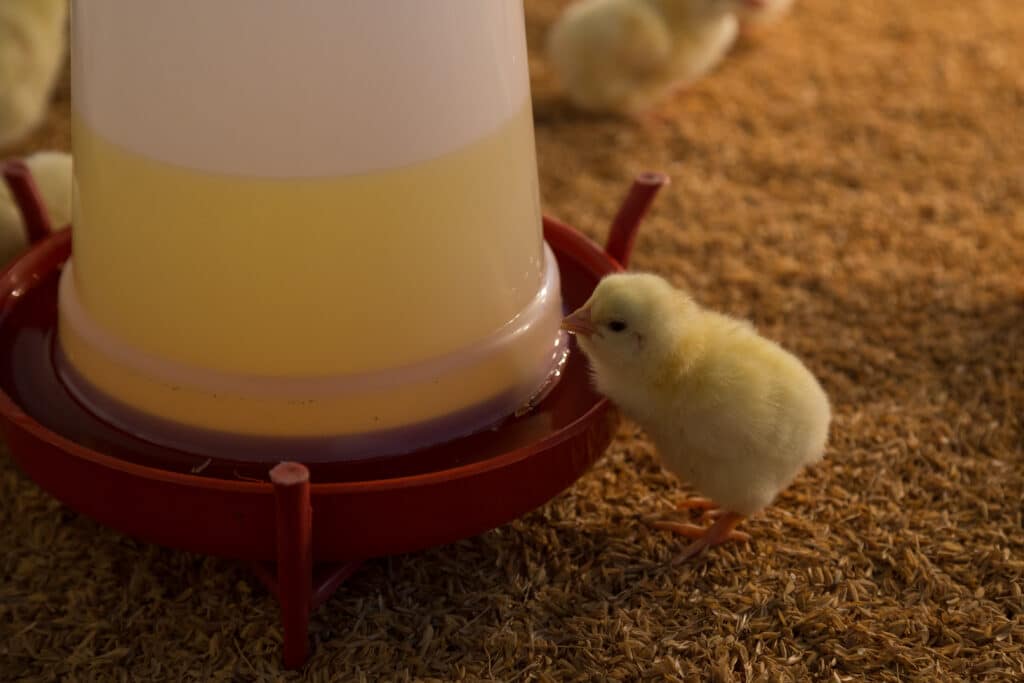Water is one of the most critical ingredients in broiler farming, yet it is often overlooked. Clean water is an essential nutrient for maintaining bird health, maximizing growth rates, and ensuring optimum feed conversion. Water is also an important vehicle for delivering treatment and vaccines to the bird as well as for ensuring effective washing and disinfection. Without proper water management, broiler farmers can experience increased disease outbreaks, reduced productivity, and higher mortality rates.
Why Clean Water is Crucial for Broiler Farming
The body of a broiler is mainly made up of water in order to facilitate biochemical processes within the body. The following are a few important functions of water in the bird and, for general use on the farm:
- Supports Growth and Feed Efficiency
Broilers consume nearly twice as much water as feed. The water must be at the correct temperature of about 18-21oC. If water is contaminated, too cold or too warm, birds may reduce their intake, leading to poor growth rates and lower meat production. - Prevents Disease and Reduces Mortality
Dirty water can carry harmful bacteria, viruses, and parasites that cause diseases like E. coli, Salmonella species, and coccidiosis. Providing clean water minimizes the risk of infections, improving overall flock health. - Enhances Digestion and Nutrient Absorption
Water plays a vital role in digestion, ensuring that nutrients from feed are efficiently absorbed. Dehydrated birds suffer from poor digestion, leading to lower weight gain. - Regulates Body Temperature
In South Africa’s warm climate, broilers rely on water to regulate their body temperature. If birds do not have access to clean, fresh water, they may become dehydrated, which can cause heat stress and lead to death. - Vaccine and Treatment Delivery
Vaccines that are applied through drinking water may be inactivated in poor quality water or, water that contains high levels of chemicals such as the chlorine. Antibiotics, vitamins and other treatments may be inactivated by water that contains impurities. - Washing and Disinfection
Hard water neutralises soap which is required to remove fat and protein during cleaning of the broiler houses and the equipment. The efficacy of the disinfectants may also be reduced when water contaminated with organic material (e.g. manure) is used.
Best Practices for Water Management
1. Provide Fresh, Clean Water Daily
- Change water at least twice a day, especially in hot weather.
- Flush out water lines regularly to remove any build-up of dirt or biofilm.
- Ensure that water temperature is ideal between 18 and 21oC.
2. Use Proper Drinkers
- Nipple drinkers reduce contamination as birds drink directly from the source. If nipple cups are installed, ensure that they are washed and litter never accumulates onto them.
- If using bell drinkers, clean them thoroughly at least once a day.
3. Protect Water from Contamination
- Place drinkers away from or slightly elevated on the bedding in order to prevent litter and droppings from contaminating the water.
- Keep water storage tanks covered to prevent algae and bacterial growth.

4. Monitor Water Quality Regularly
- Use a clean water source such as boreholes or clean municipal water.
- Test water for pH levels and contamination at least once a month. The ideal pH level is about 6.8 to 7.8.
- Add water sanitizers like chlorine or organic acids to kill harmful pathogens. Ask the supplier of the chlorine chemical the required dose that must be applied in the drinking water. Ensure that the water is drinkable especially for the young chicks. Do not use the chlorinated water to apply the vaccine unless a stabiliser or chlorine binder is used.
5. Prevent Water Spillage and Waste
- Position drinkers at the correct height (level with the birds’ back) to minimize spillage.

- Ensure there are enough drinkers to prevent overcrowding and competition for water.
Conclusion
Clean water supplied at the correct temperature is essential for a successful broiler farming operation. By following proper water management practices, small-scale farmers can ensure healthy, productive birds, leading to better growth rates and higher profits. Investing time in maintaining clean water will pay off through improved flock performance and reduced disease outbreaks.
